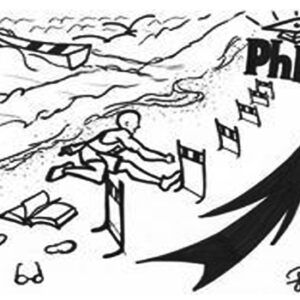First of all, I want to thank Paul Krugman for inspiration, many free books and fun conversations. I often pinch myself, as a reality check, when noting that such a preeminent economist — and definite future Nobel laureate — is supervising my work. I guess this is what makes Princeton so special. Many thanks to all who have read this thesis, including (and especially) Alan Blinder, Hyun Song Shin, Gene Grossman, Nobuhiro Kiyotaki, and Lars Svensson, as well as classmates and friends. Also, much appreciation to Thijs van Rens and Vasco Cúrdia for help with SWP, and to Gene Grossman, who helped me secure funding when I was post-enrolled (the bane of the graduate student). The usual caveat applies: All remaining errors in this dissertation are my own. The many years spent at Princeton have been unbelievable, eliciting from me a myriad of emotions. I will cherish my experiences and especially my friends, who added much delight to times spent in Princeton. There are too many people to thank individually for all the camaraderie that I have enjoyed, so I will instead begin by thanking groups that are dear to me. Foremost, I must thank colleagues, faculty and staff from…

 Students of English literature might be acquainted with Alan Sillitoe's classic novel, "The Loneliness of the Long Distance Runner." In that story, the protagonist, Smith, gains relief from his chaotic schedule in a well-heeled boarding school and time to muse about life in his daily runs. As a runner myself — having competed in track and field, cross-country and marathons — I empathize with Smith. One of the simple pleasures of long-distance running is the seclusion that Sillitoe notes. The solitude of running provides an opportunity to appreciate, inter alia, the beauty of the sun setting over rolling hills while hearing the sound of leaves crunching under one's feet. However, sometimes the solitude is simply lonesome. This is why I sometimes think that Sillitoe was in fact writing about the doctoral adventure. The Ph.D. is a very lonely pursuit, and it goes without saying that it is a long race, metaphorically speaking. (The median time from matriculation to receiving a Ph.D. is 6.0 years.) And the isolation of the Princeton graduate experience has given me an epiphany about life: It really is stranger than fiction. Though I don't run on the beach, I often imagine leaving tracks in the sand…
Students of English literature might be acquainted with Alan Sillitoe's classic novel, "The Loneliness of the Long Distance Runner." In that story, the protagonist, Smith, gains relief from his chaotic schedule in a well-heeled boarding school and time to muse about life in his daily runs. As a runner myself — having competed in track and field, cross-country and marathons — I empathize with Smith. One of the simple pleasures of long-distance running is the seclusion that Sillitoe notes. The solitude of running provides an opportunity to appreciate, inter alia, the beauty of the sun setting over rolling hills while hearing the sound of leaves crunching under one's feet. However, sometimes the solitude is simply lonesome. This is why I sometimes think that Sillitoe was in fact writing about the doctoral adventure. The Ph.D. is a very lonely pursuit, and it goes without saying that it is a long race, metaphorically speaking. (The median time from matriculation to receiving a Ph.D. is 6.0 years.) And the isolation of the Princeton graduate experience has given me an epiphany about life: It really is stranger than fiction. Though I don't run on the beach, I often imagine leaving tracks in the sand…